Menu
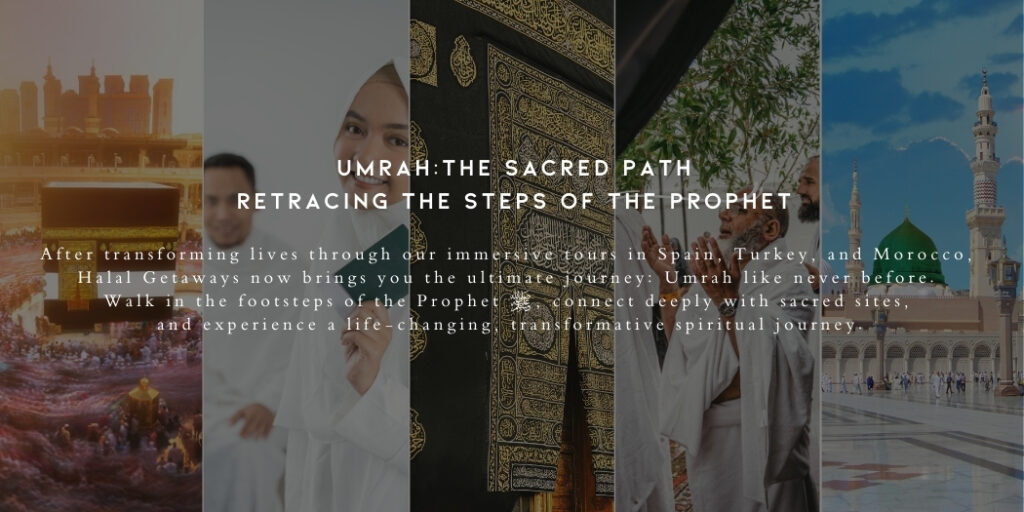
Embark on a journey unlike any other—a journey that combines the sacred pilgrimage of Umrah with a profound exploration of Islamic history and the life of the Prophet Muhammad (peace be upon him). This is not merely a trip; it is an opportunity to reconnect with the essence of our faith, rediscover the depth of our worship, and walk in the footsteps of the greatest human to have ever lived.
At Halal Getaways, we are honored to bring you this unique program, inspired by the Islamic tradition of Travel for the Sake of Knowledge. Over the course of ten days, you will immerse yourself in the rich historical, spiritual, and cultural legacy of Islam. From performing the sacred rites of Umrah to reliving the Seerah through site visits and reflections, this journey is designed to transform not only your understanding but your heart and soul.
While the physical rites of Umrah are essential, this journey takes you deeper, connecting every act with its spiritual essence and historical significance. Guided by knowledgeable historians, and experienced guides, you will gain insights into:
This Umrah is tailored to be a complete experience—spiritually uplifting, intellectually enriching, and emotionally fulfilling. It bridges the acts of worship with the timeless lessons they carry, ensuring that you return home with more than just memories but a renewed sense of purpose and connection to your faith.
Over time, the deeper meaning behind the Umrah rituals can sometimes be overlooked. This program is a revival, focusing on the heart of each act to ensure that your worship is not just performed but felt deeply.
Ihram: More than a garment, Ihram is a state of total submission, humility, and equality before Allah. As you don it, reflect on the unity of the Ummah and the journey of life itself.
Tawaf: Circling the Kaaba is a metaphor for centering your life around Allah. Each circuit is a reminder of His mercy, greatness, and your ultimate purpose.
Sa’i: Reliving the struggle of Hajar (peace be upon her) is a lesson in perseverance and trust in Allah, even in the most trying times.
The shaving or trimming of hair: A physical and spiritual renewal, symbolizing the shedding of sins and the start of a new chapter in life.
With guided reflections, this journey will help you unlock the essence of these rituals, transforming them into profound acts of devotion and growth.
What does it mean to walk in the footsteps of the Prophet (peace be upon him)? It means to connect not just with the locations he visited but with the emotions, challenges, and triumphs he experienced. From the Cave of Hira where revelation began to the fields of Badr where courage and faith triumphed, you will relive the Seerah in a way that no book or lecture can replicate.
This journey is designed to immerse you in the revelation itself:
The essence of the rituals of Umrah lies in the spiritual transformation of the pilgrim. It is a journey of submission, self-purification, and deep reflection on one’s relationship with Allah. Each ritual of Umrah is rich in symbolism and meaning, designed to remind the believer of their purpose in life and their connection to the Creator. Each ritual is individually broken to to understand key rituals, their symbolism, and the lessons that can be drawn from each. Below is an example of the first and all the others will be revealed in turn.
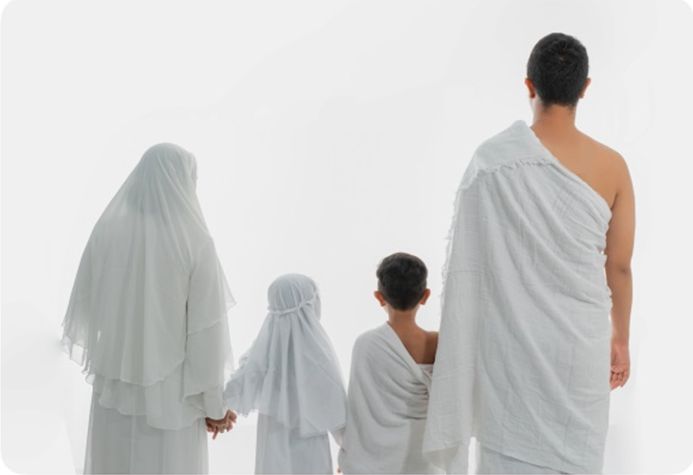
Ritual: Before entering the sacred precincts of Makkah, pilgrims enter the state of Ihram, wearing simple, unstitched white garments for men and modest, clean clothing for women. They make the intention (niyyah) to perform Umrah and recite the Talbiyah: "Labbaik Allahumma Labbaik..." (Here I am, O Allah, here I am...) Symbolism: Equality and humility: The uniform clothing symbolizes the equality of all before Allah, removing markers of wealth, status, and nationality. Detachment from the material world: The simplicity of Ihram signifies leaving behind worldly distractions and focusing on Allah. Lesson: Reflect on the impermanence of life and the Day of Judgment when all will stand before Allah in humility. Cultivate an attitude of submission and unity with fellow Muslims.
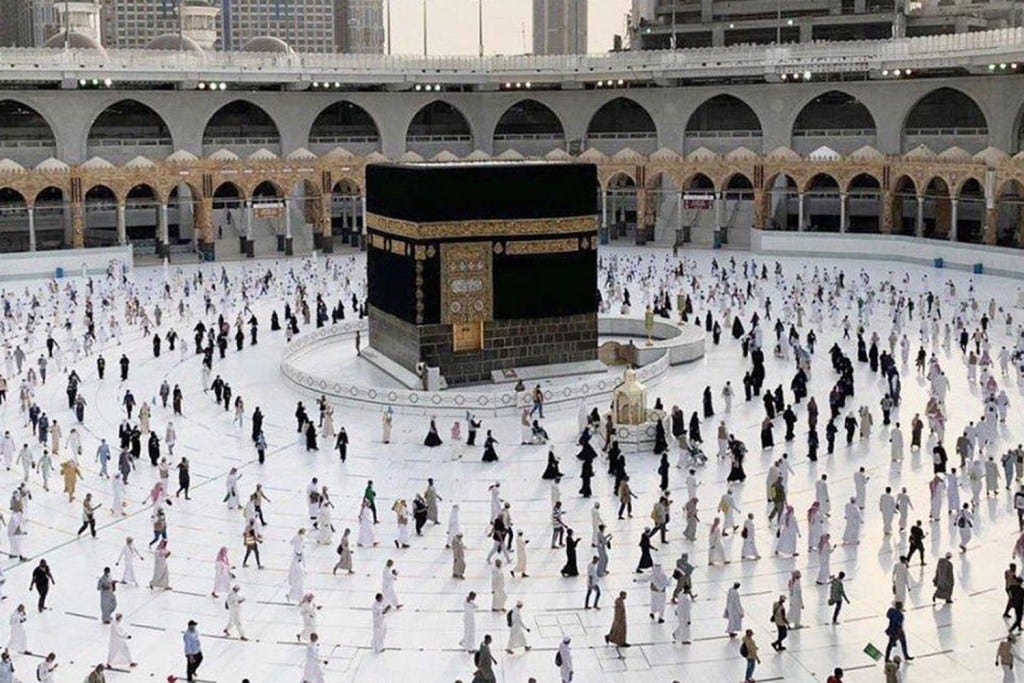
Ritual: Pilgrims walk around the Ka'bah seven times in a counterclockwise direction, starting from the Black Stone (Hajr al-Aswad), while reciting supplications. Symbolism: Unity and focus on Allah: Tawaf symbolizes the centrality of Allah in our lives, just as the Ka'bah is the physical and spiritual center of the Muslim world. Submission and love: Moving in unison with others reflects the harmony of the universe, where all creation revolves around the worship of Allah. Lesson: Recenter your life around Allah. Let your actions, goals, and thoughts revolve around Him. Embrace the collective nature of the Muslim Ummah, recognizing that every believer shares the same ultimate purpose.
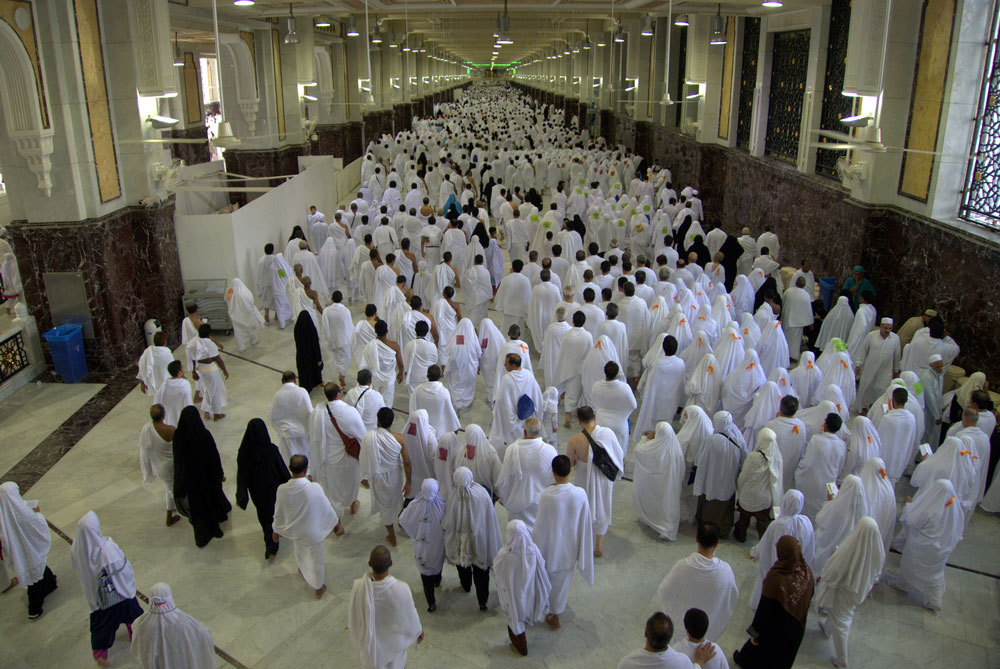
Ritual: Pilgrims walk briskly back and forth seven times between the hills of Safa and Marwah, re-enacting Hajar’s search for water for her son, Isma'il (AS). Symbolism: Faith and perseverance: Hajar's unwavering faith and effort in seeking sustenance for her child highlight trust in Allah and striving for solutions. Reliance on Allah: Despite her effort, it was ultimately Allah who provided the water (Zamzam), reminding us that success comes only by His will. Lesson: Combine faith with effort. Rely on Allah but also take proactive steps in your struggles. Trust that Allah’s plan will always provide what is best, even if it requires patience and perseverance.
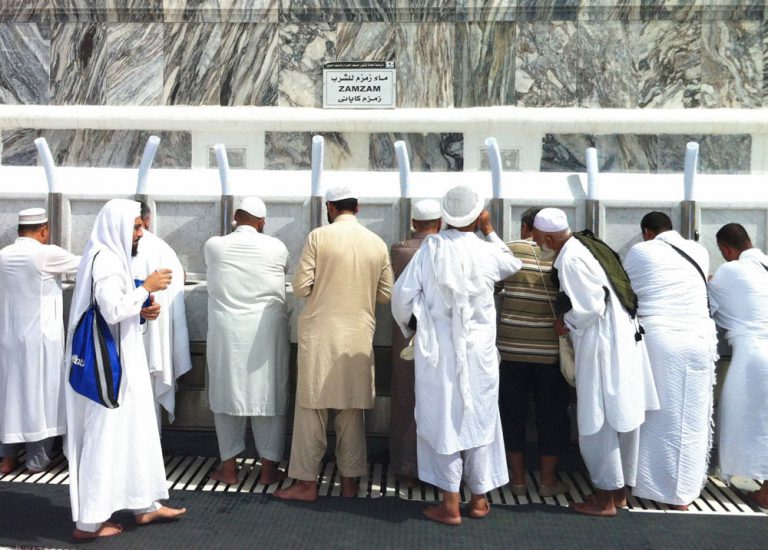
Ritual: Pilgrims drink from the blessed Zamzam well, a miraculous source of water provided by Allah to Hajar and Isma'il (AS). Symbolism: Barakah (blessing): Zamzam water symbolizes Allah’s mercy and provision. Spiritual and physical sustenance: It serves as a reminder that Allah nourishes both body and soul. Lesson: Be grateful for Allah’s endless blessings and provision in your life. Seek to purify both your intentions and your actions, as Zamzam is pure and blessed. Image of Zamzam Water
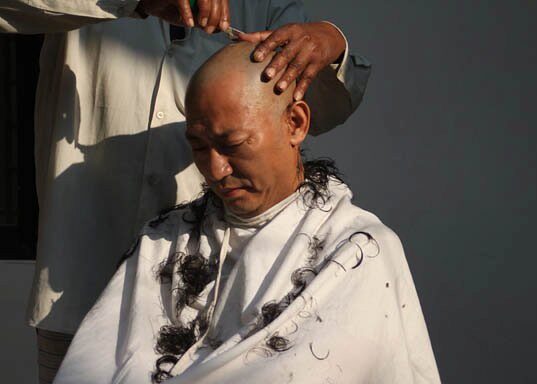
Ritual: Men shave their heads or trim their hair, while women cut a small portion. This marks the completion of Umrah. Symbolism: Renewal and purification: The removal of hair represents shedding sin, starting afresh, and submitting entirely to Allah. Detachment from vanity: Shaving or trimming symbolizes humility and letting go of pride in physical appearance. Lesson: Embrace humility and strive for spiritual renewal. Commit to a path of obedience and righteousness. Leave Umrah transformed, with a heart free of sin and focused on the hereafter.
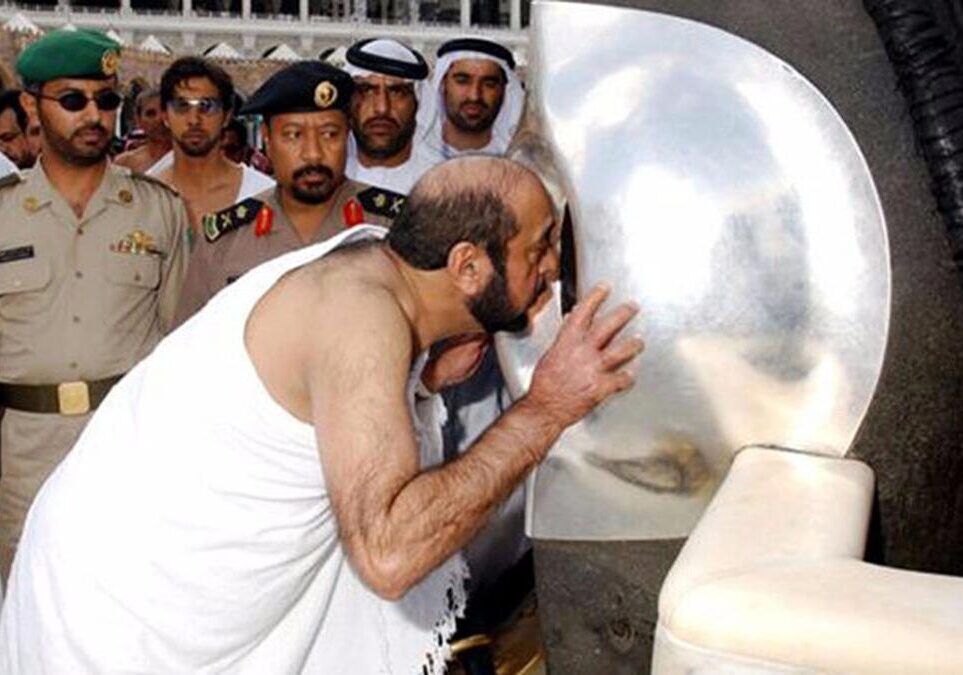
Ritual: If possible, pilgrims kiss or touch the Black Stone as they pass during Tawaf. If not, they gesture toward it. Symbolism: Connection to Prophetic tradition: The stone was placed by Prophet Ibrahim (AS) and kissed by Prophet Muhammad (PBUH), symbolizing continuity of faith. Forgiveness and renewal: Kissing the stone is a symbolic act of devotion and repentance. Lesson: Seek forgiveness with sincerity, acknowledging your imperfections. Value the spiritual over the physical, as the significance lies not in the stone itself but in obeying Allah.
By highlighting the spiritual essence, symbolic significance, and practical lessons of each ritual, we ensure that those on a Halal Getaways Umrah journey experience a transformative pilgrimage that resonates deeply with their faith and life, InSha Allah.
Begin with the historical and spiritual significance of each ritual. For example, narrate the story of Hajar when explaining Sa’i or Prophet Ibrahim’s role when discussing the Ka’bah.
Emphasize that every ritual has roots in acts of devotion performed by Prophets and their families, linking pilgrims to a legacy of faith.
Encourage participants to reflect on their personal connection to the rituals. Ask them questions like, “What can you take from Hajar’s perseverance?” or “How can you let Allah become the center of your life like the Ka’bah is during Tawaf?”
Provide practical advice on how to embody the lessons in daily life. For instance, remind them to prioritize salah after emphasizing the symbolism of centering life around Allah in Tawaf.
Suggest meaningful supplications during each ritual. For example, during Sa’i, encourage them to ask Allah for strength and perseverance in their personal challenges.
After each major ritual, gather the group for a short debrief. Let participants share their thoughts and feelings, fostering a deeper communal connection to the journey.
After Tahallul, remind participants that Umrah is not just a series of physical acts but a renewal of their relationship with Allah. Urge them to carry the lessons learned into their everyday lives.
Your hearts are open, your spirits are pure, and your connection to Allah has been renewed through the sacred rituals of Umrah. You have just completed a journey of submission, humility, and self-reflection—an act that mirrors the journey of our beloved Prophet Muhammad (peace be upon him) and the first believers. Now, you are ready to step into their world, to walk in their footsteps, and to immerse yourself in the beginnings of Islam. Together, we will travel back in time, exploring the life-changing events and lessons from the very cradle of our faith.
The Shared Spirit of Sacrifice and Dedication: Just as you left your homes and comforts behind to come on this spiritual pilgrimage, the Prophet (PBUH) and the early Muslims sacrificed everything for the sake of Allah. Their trials and struggles laid the foundation for the faith we practice today. You have emulated their spirit by answering Allah’s call to His House.
From Personal Renewal to Historical Discovery: Your Umrah was a journey inward—cleansing the soul and renewing your relationship with Allah. Now, we embark on a journey outward, discovering how Islam began and spread through the unwavering faith and actions of the Prophethram
Life changing experience for 20+ Years
We offer an excellent Halal experience
We help you every step of the way
Easy, simple & hassle free

58a Stratford Street North, Birmingham, B11 1BP